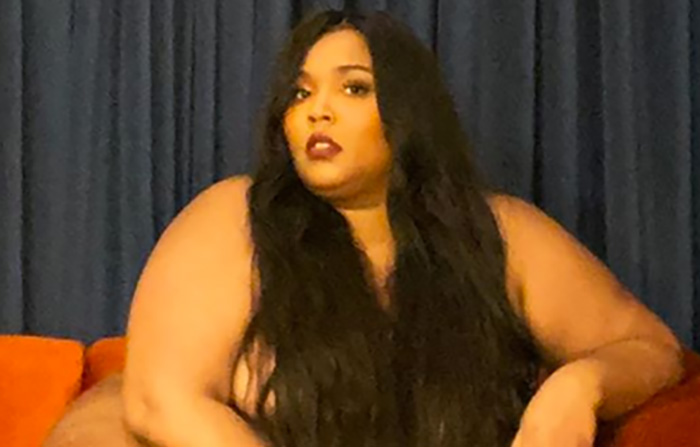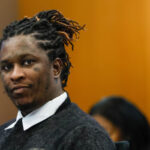A St. Louis County grand jury declined to indict officer Darren Wilson, 28, for firing six shots in an August confrontation that killed 18-year-old Michael Brown, St. Louis County prosecutor Robert McCulloch said Monday night.
The decision had been long awaited and followed rioting that resembled war-zone news footage in this predominantly black suburb of St. Louis.
Crowds of protesters filled streets near the Ferguson police station following the announcement. At least one police car appeared to be heavily damaged. Reporters on the scene said they heard gunshots and saw bricks being thrown, and that police responded with tear gas.
In Washington, President Obama appeared before TV cameras. “We need to accept that this decision was the grand jury’s to make,” he said in calling for peaceful protests. But he said the Ferguson case “speaks to broader challenges that we still face as a nation.”
Prosecutor McCulloch made the announcement in an unusual nighttime presentation in a courtroom. He spoke at length about media coverage of the case and what he called the unreliability of eyewitness accounts. He said the grand jury weighed evidence and testimony before concluding there was no probable cause to indict the officer.
The unusual timing of the grand jury’s announcement, after darkness had fallen, was a decision of prosecutors, Nixon said.
He said several local churches would provide shelter, safe haven and medical care in the event of unrest.
As officials called for peace, security preparations were beefed up around the courthouse and at other locations including the Ferguson police headquarters. Barricades were erected and Missouri state troopers were present with rifles, 3-foot batons, riot shields and other equipment. Crowds of protesters waving signs and chanting spilled into streets near the police offices.
“This is not the time to turn on each other; it is a time to turn to each other,” said St. Louis County Executive Charley Dooley. “We are one community,” he said.
St. Louis Mayor Francis Slay acknowledged the case “has deeply divided us” but said “turning violent or damaging property will not be tolerated.”
“The world will be watching us,” Slay said.
Anthony Gray, a lawyer for the Brown family, said they were informed the announcement by the county prosecutor, Robert McCulloch, was imminent.
Police have said Brown struggled with Wilson inside his police car, then reached for Wilson’s weapon. Brown’s family and some witnesses say Wilson killed Brown as he raised his hands in surrender.
The death of Brown, 18, touched off weeks of protests, and the decision by the grand jury on whether to bring charges prompted extraordinary precautions by law enforcement and the community. The Ferguson school district canceled Tuesday classes.
Brown’s family called for 4½ minutes of silence after the grand jury announcement, Maggie Crane, spokeswoman for St. Louis Mayor Francis Slay, said in a tweet Monday afternoon.
St. Louis County Police asked for donations for officers working round-the-clock shifts in Ferguson. Items requested on the department’s Facebook page include Visa gift cards, water, Gatorade, soda, hand and foot warmers, DayQuil and cough drops. The department said it uses the gift cards to order hot meals for the command centers.
“The duty of the grand jury is to separate fact from fiction,” McCulloch said.
He said prosecuting attorneys presented five potential indictments to the grand jury, and all were rejected.
“The jury was not inclined to indict on any charges,” Benjamin Crump, an attorney for Brown’s family, said after being informed of the decision by authorities.
Brown’s family attorneys received a call from McCulloch shortly before the announcement. Crump took the call and and delivered the news to Brown’s family in an area hotel.
“The jury was not inclined to indict on any charges,” Crump said to Lesley McSpadden, Brown’s mother. “He (McCulloch) said he would be willing to meet with you all.”
McSpadden began crying and shouting. Her body vibrated with pain as she jumped to her feet.
“I do want to meet with him right now,” McSpadden screamed. “What do you mean no indictment?!”
She then ran out of a hotel room followed by family members.
Brown’s family later released a statement saying,
“We are profoundly disappointed that the killer of our child will not face the consequence of his actions.” The urged others who share their pan to “channel your frustration in ways that will make a positive change.”
Missouri Gov. Jay Nixon, a Democrat, called for calm after calling up National Guard troops to stand by in case of unrest. Speaking before the decision was announced, he urged that “regardless of the decision, people on all sides show tolerance, mutual respect and restraint.”
Crowds gathered around the Ferguson police headquarters in anticipation of the announcement at the courthouse in Clayton, Mo., another St. Louis suburb.
The 12-person grand jury had been considering whether probable cause existed to bring charges against Wilson, 28, the white officer who fatally shot Brown, an 18-year-old black man, after their Aug. 9 confrontation. The shooting inflamed tensions in a largely minority community that is patrolled by an overwhelmingly white police force.
Brown’s lifeless and bleeding body lay for more than four hours in a Ferguson residential street after the shooting, prompting dismay and anger as a crowd gathered. Protests turned into rioting and looting the following night, and police responded with armored vehicles and tear gas, triggering a nationwide debate over police tactics.
The 12-person grand jury, including nine whites and three African Americans, had been meeting in secret for months, hearing evidence and weighing whether Wilson’s should face charges that could have ranged from involuntary manslaughter to murder.
Brown’s family joined thousands of protesters to demand Wilson’s arrest. As anger at official inaction grew following Brown’s death, protesters clashed with police, who began patrolling the streets with military-grade weapons and armored vehicles.
Wilson has been on paid leave and largely invisible since the shooting.
While the grand jury met in secret to hear evidence in the case, two starkly different versions of the events leading to the shooting emerged in media accounts.
Police have said a scuffle broke out after Wilson asked Brown and a friend to move out of the street. Wilson told investigators he shot Brown only after the teenager reached for the officer’s gun. Some witnesses said Brown had run away from Wilson, then turned and raised his hands in the air in a gesture of surrender before he was shot in the head and chest.

![Da Brat Marries Judy Dupart on 2.22.22 [PHOTOS]](https://hiphopucit.com/wp-content/uploads/2022/02/1645669184565-440x264.jpeg)
![Drake Reveals Photos of His Son Adonis [Photos]](https://hiphopucit.com/wp-content/uploads/2020/03/Drake-and-on-Adonis-HHUCIT.jpg)

![Megan Thee Stallion – “BOA” [NEW VIDEO]](https://hiphopucit.com/wp-content/uploads/2024/05/Megan_Thee_Stallion___BOA__Official_Video__1_12_screenshot-440x264.jpg)
![Doechii Feat. JT – “Alter Ego” [NEW VIDEO]](https://hiphopucit.com/wp-content/uploads/2024/05/Screenshot-of-Doechii-and-JTs-Al-440x264.png)
![Young Thug Feat. Drake Drop – “Oh U Went” [NEW VIDEO]](https://hiphopucit.com/wp-content/uploads/2023/07/Young-Thug-and-Drake-1014x570-1-440x264.png)
![BREAKING: The Grand Jury Finds No Indictment For Officer Darren Wilson in the Death Of Michael Brown [VIDEO]](https://hiphopucit.com/wp-content/uploads/2014/11/635524574064486154-AFP-535661612-001.jpg)







